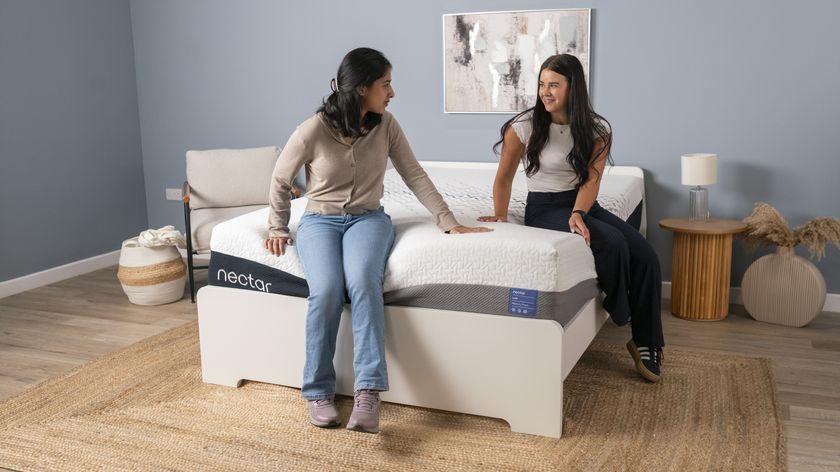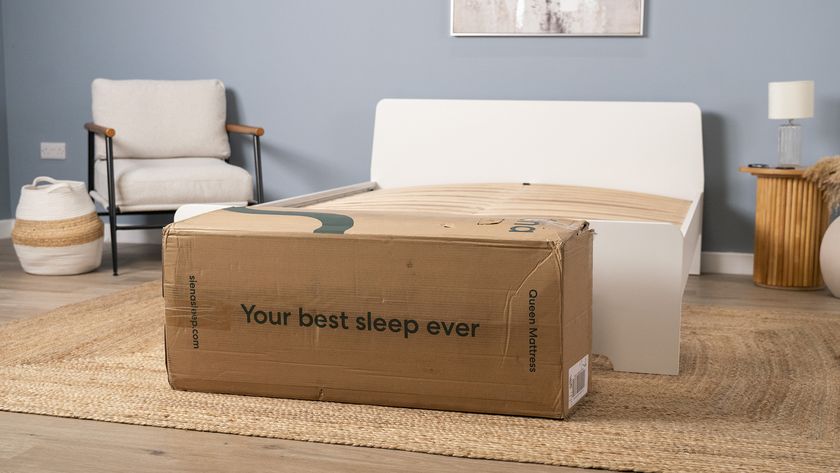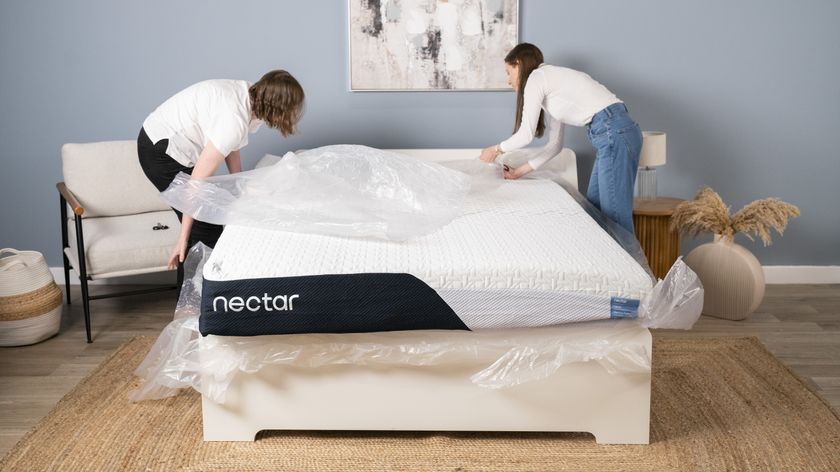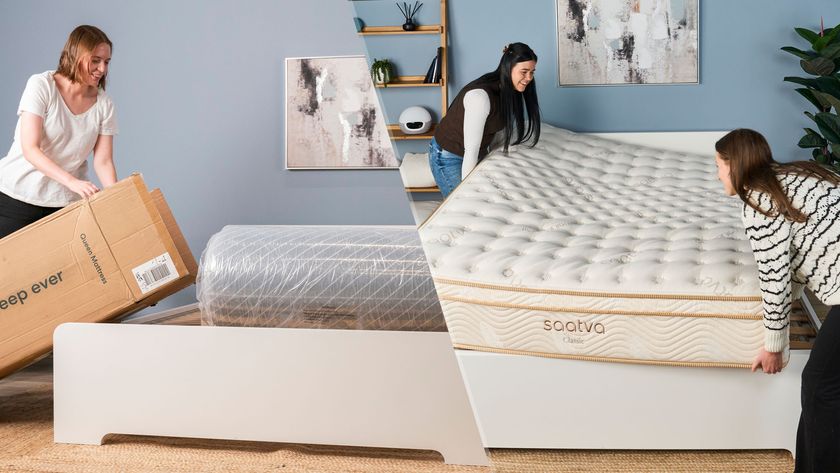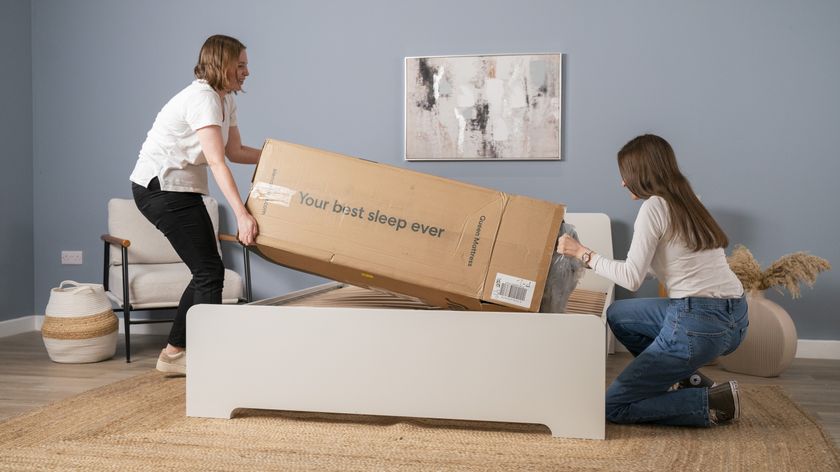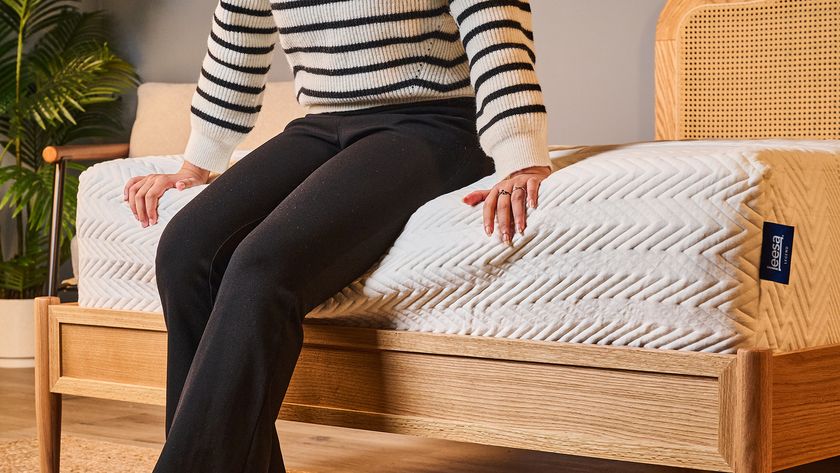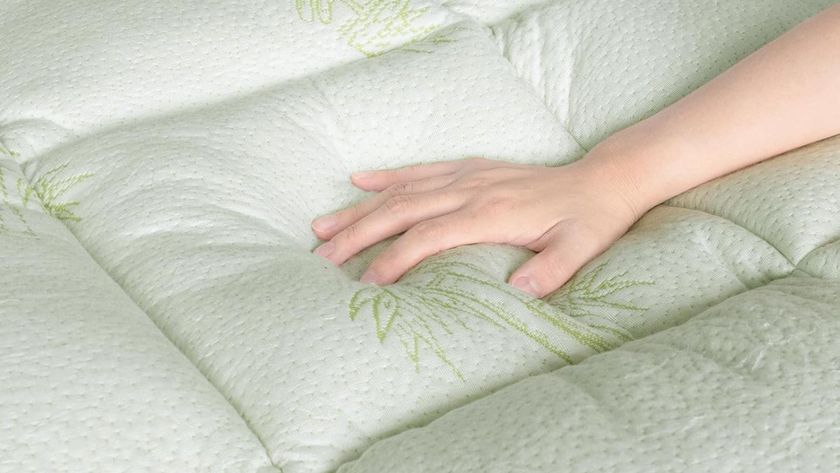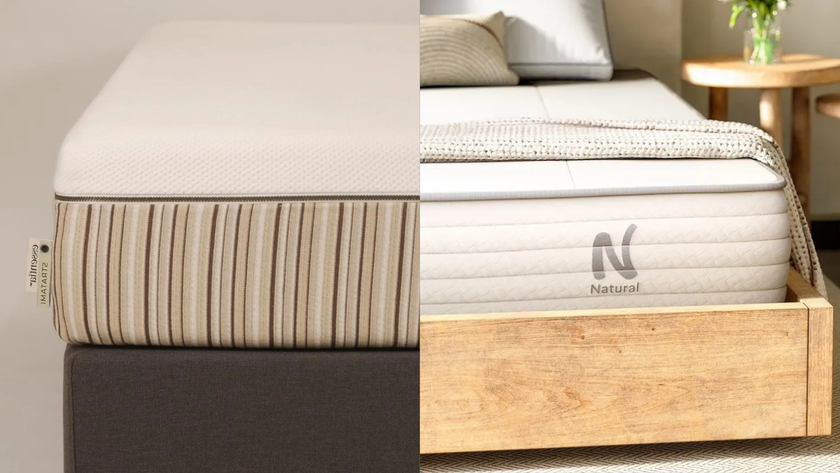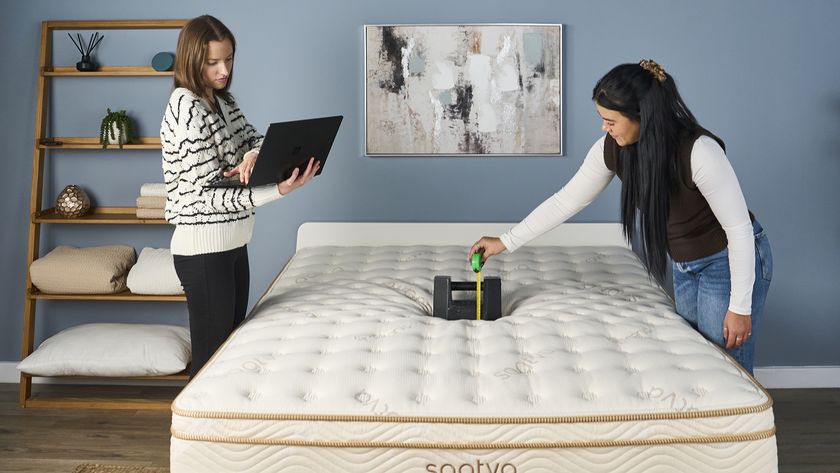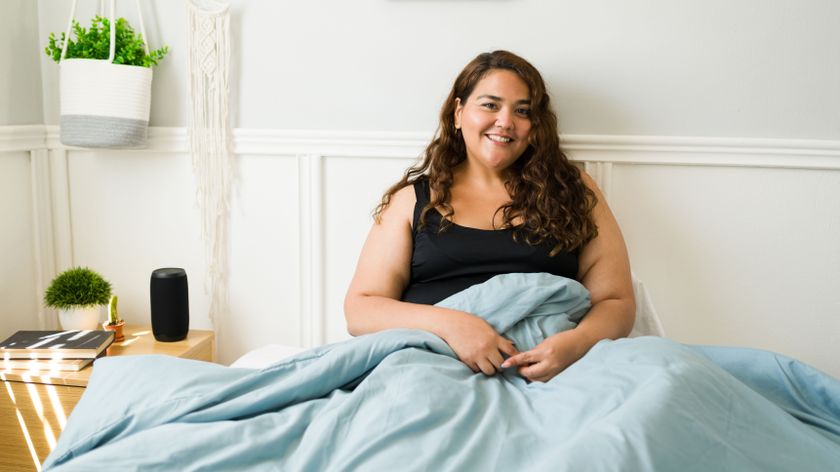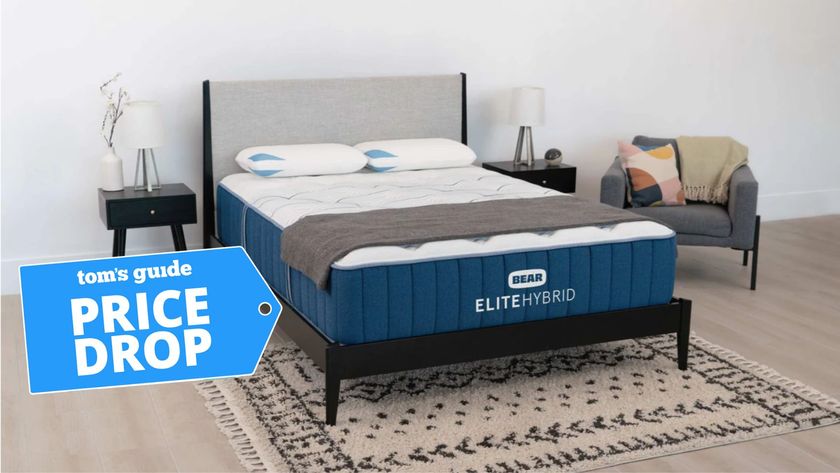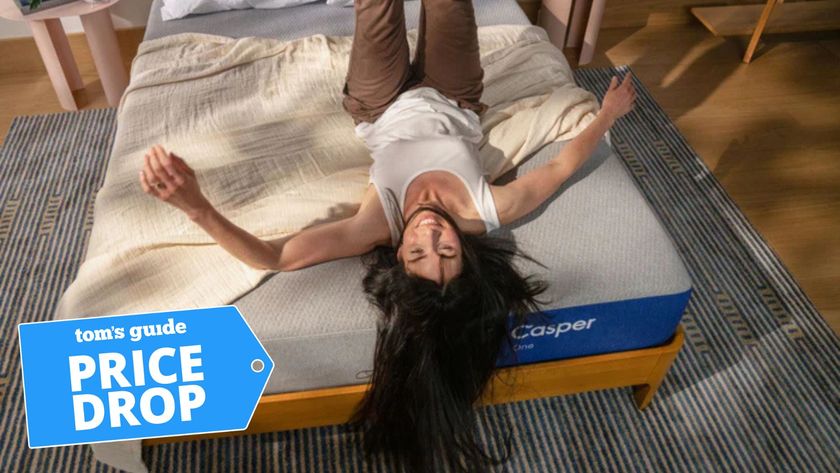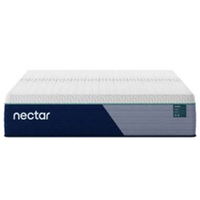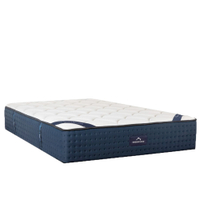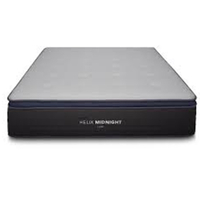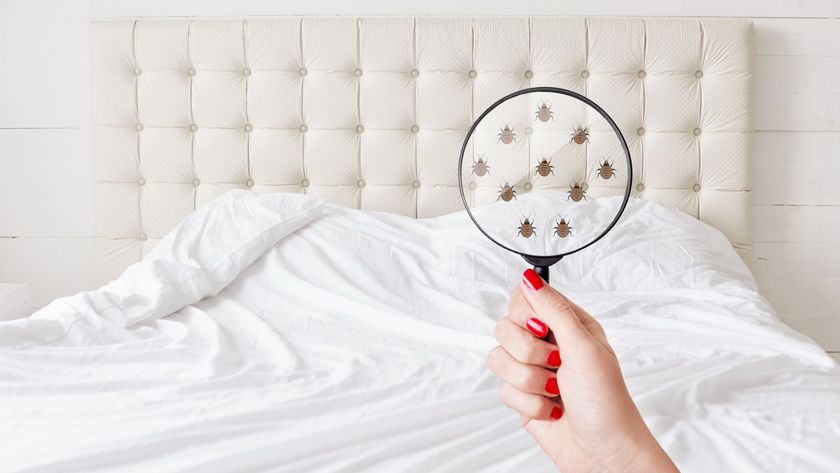6 things to expect after buying a mattress in a box
From care tips to expansion times, here's everything you need to know about mattresses in a box
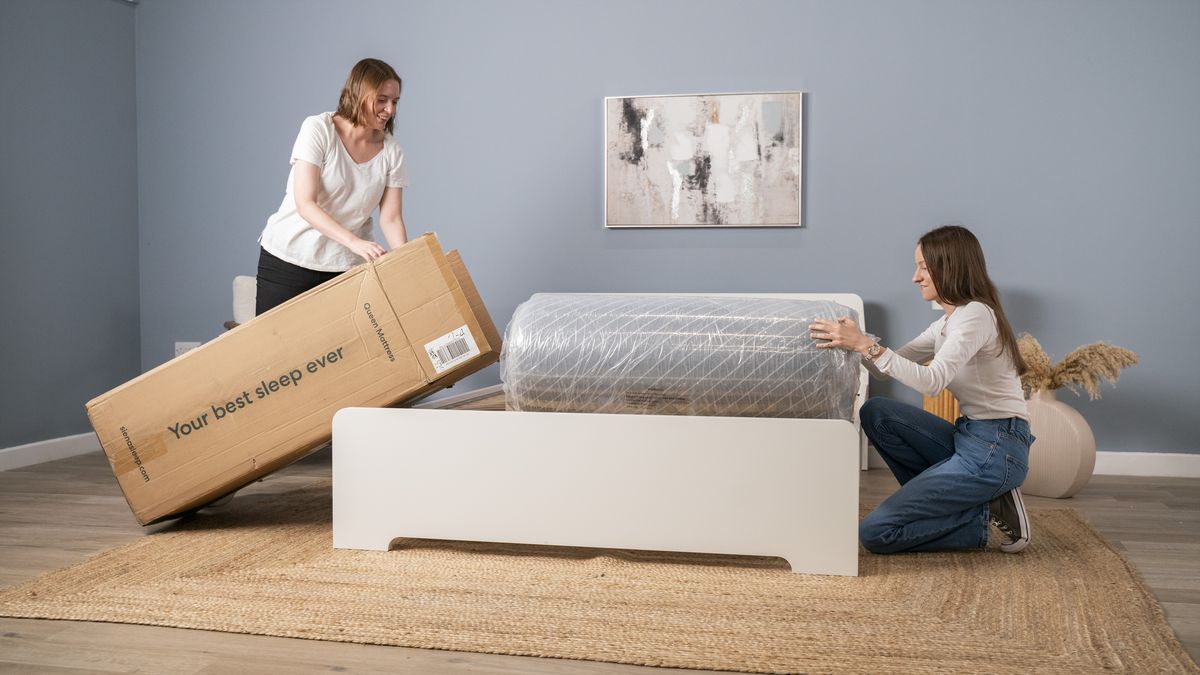
Mattresses in a box have revolutionized the bedroom industry, giving sleepers the chance to pick up a mattress for far less than many traditional versions that are delivered flat. Even though these boxed mattresses can be far cheaper, you don’t need to skimp on quality, with these beds offering all the support and comfort you’ll need for a good night’s sleep.
Many of this year’s best mattress picks for all sleepers are mattresses in a box, with these beds coming in either all-foam or hybrid varieties. But once you’ve decided to buy a mattress in a box, what can you expect when it arrives at your door?
We’re covering all the aspects you need to know, from unboxing and expansion time to comfort and care tips. With the Black Friday mattress deals landing already, it’s never been a better time to upgrade your bed. But is a mattress in a box the right choice? Let’s take a look…
What is a mattress in a box?
A mattress in a box is a mattress that has been compressed by a specialist heavy weight, before being rolled in heavy duty protective plastic to be shipped to your front door. Once they’ve arrived at your house, they can be unboxed to unroll and expand back to their full height and shape.
Mattresses in a box come in both all-foam and hybrid versions, meaning there are a number of options available that will suit most sleepers. You’ll also find options in a variety of price brackets to suit most budgets. Our guide to the best mattresses in a box will give you plenty of possibilities to choose from.
What to expect after buying a mattress in a box
1. Mattresses in a box can be heavy
Compressing a mattress into a box for delivery is great for brands as it saves them money and makes it easier to transport the beds. However, you need to remember that this is still a full-size mattress squeezed into a box. And that means it could be extremely heavy.
For this reason, we thoroughly recommend taking advantage of any white glove delivery service that will deliver the mattress directly to your bedroom. These services will often set up the mattress for you and take your old mattress away.
Sign up to get the BEST of Tom's Guide direct to your inbox.
Get instant access to breaking news, the hottest reviews, great deals and helpful tips.
If you do need to transport the mattress from your front door to your bedroom by yourself, make sure there are two of you to lift it. Many mattress boxes have handles but, if not, you might find it easier to take the mattress out of its box and just lift the bed upstairs.
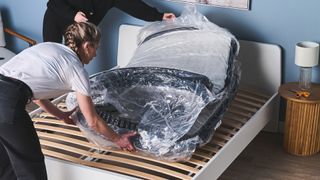
2. You shouldn’t leave your mattress boxed up
Don’t make the mistake of buying a mattress in a box and then leaving it in its box. Leaving a mattress compressed for months after it arrives in your home could damage the materials. Some manufacturers say you can leave your mattress in its box for three months, but many recommend unpacking it after a week.
Instead, get your mattress unpacked. Position the mattress on your bed frame and carefully cut open the plastic wrappings. There are usually several layers, with some brands providing a cutter although scissors will work just as well. Be warned, once you release the mattress from its vacuum packing, it will start to expand quickly.
3. You’ll need to give the mattress time to expand
Mattresses in a box have been compressed with specialist machinery, before being wrapped in heavy duty plastic. This means that when you release them from their plastic, they will initially start to expand fairly quickly. But it does take a certain amount of time for a mattress to expand fully before it can be slept on.
This is because it takes time for air to get back into each layer of the mattress, allowing the foams and coils (if the mattress has them) to expand to their full height. Sleep on a mattress before it’s fully expanded and you run the risk of damaging the layers, preventing them from fully expanding.
Mattress expansion times vary between different manufacturers. Purple mattresses only take 24 hours to expand, but others such as Nectar will take 72 hours to get to their full height. However, you can usually sleep on mattresses in a box after four to six hours.
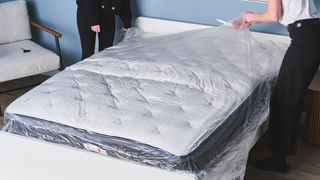
4. You may need to open a window
Mattresses in a box can be prone to off-gassing, a side effect of wrapped products such as mattresses in a box. Off-gassing is the process in which volatile organic compounds (VOCs) are released from a product as it expands from compression. It isn’t inherently dangerous, but care should be taken if you suffer from asthma or have very young children in the house.
The best way to dissipate the gas quickly is to shut the bedroom door and open all the windows up to get the smell out quickly. Many modern mattresses in a box will stop smelling after an hour or two, although some can off-gas for a couple of days.
5. You’ll need to protect it straight away
Some mattresses come with washable covers, some don’t, but even so we’d recommend using one of the best mattress protectors to protect the mattress from any spills and stains. A protector is also considerably easier to remove and wash on a regular basis.
It’s important to keep up with cleaning your mattress to remove any build-up of dust, dirt and any mites, as well as rotating your mattress regularly to prevent dips forming. Exactly how often you should rotate your mattress varies from brand to brand, but we recommend rotating it at least every three months.
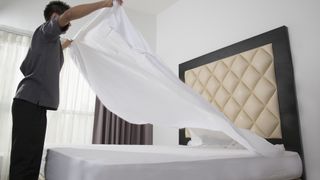
6. You need to give your mattress time
Whatever mattress you’ve been sleeping on, a new mattress in a box is bound to feel different. This could be particularly pronounced if you’re changing the type of bed you’re sleeping on.
If you move to an all-foam mattress, it’s likely to have more sinkage and contouring than the bounce you’ll find in a hybrid, latex or innerspring mattress. This is why manufacturers provide sleep trials, giving sleepers time to try a mattress out. In general, these vary from 100 nights up to an entire year, which gives you plenty of time to see if the bed is right for you.
What to do if you don’t like your new mattress in a box
Buying a mattress in a box means that you won’t have had a chance to try it out before purchasing. And this is why brands provide sleep trials. But what do you do if you decide that your new mattress isn’t for you? These are the options that you have:
- Give the mattress a fair trial: Most brands won’t accept returns or exchanges until you’ve slept on a mattress for at least 30 days. And this is because it takes time to get used to a new mattress and to ‘break’ it in. So, before you return your mattress, make sure you’ve given it a fair trial.
- Ask for a free comfort layer: Some brands will offer a free comfort layer if your mattress is too firm or too soft, helping to alter the feel of the mattress and giving you more time to break it in.
- Exchange the mattress: If the brand you’ve purchased from has other mattresses on offer, you could consider exchanging the mattress for another one that’s firmer or softer (according to your requirements). However, this could mean that you won’t be able to return the replacement at all, so do check the policies.
- Return the mattress: If your mattress is within its trial period, you will be able to return it for a full refund, providing it’s in good condition and not damaged.

How to return a mattress in a box
Different manufacturers will have different guidelines here and our feature on how to return a mattress in a box will give you more details. In general, the first step is to contact customer service to tell them that you’re not getting on with the mattress. Remember that you will need to have slept on the mattress for at least 30 days before you can request a return.
If you aren’t able to try out a comfort layer or exchange the mattress as detailed above, you may decide you want to return the mattress for a refund. To do this you’ll need to make sure that it doesn’t have any stains or marks on it and that it isn’t damaged, as it could void the warranty (this is why a mattress protector is so vital). And you’ll also need to make sure the safety tag is intact and that you have any paperwork that came with the mattress.
3 mattresses in a box with free returns
1. Nectar Classic Memory Foam Mattress: from $1,063 $349 at Nectar
It may be all-foam, but the medium firm feel of the Nectar means that it will appeal to both side and back sleepers. It delivers a great blend of softness and support, contouring enough to cushion your joints and ease pressure points. The mattress has recently been slightly updated, but we don’t expect the feel to be vastly different from our findings in our original Nectar Mattress review. You can pick up a queen size for $649 (MSRP $1,563) and you’ll get great perks like a forever warranty, a 365-night trial, and free shipping and returns.
2. DreamCloud Mattress: from $419 $1,130 at DreamCloud
The DreamCloud is one of the best mattresses for back pain, offering excellent hip and back support. In our DreamCloud mattress review we found that the mattress suited most sleepers, although it is likely that lightweight side sleepers may find it a little too firm. It’s also one of the best mattresses for motion isolation. A queen size mattress is currently $665 (MSRP $1,613) and you can expect the same perks Nectar offers.
3. Helix Midnight Luxe Mattress: from $1,373.75 $1,099 at Helix
The Helix Midnight Luxe is our favorite mattress for side sleepers, offering a premium pillow top for added comfort. In our Helix Midnight Luxe mattress review, our testers found that the mattress offered incredible pressure relief and was also suitable for back sleepers. Stomach sleepers should avoid though, as it’s not firm enough to keep the spine aligned in this position. A queen size mattress is $1,899 (MSRP $2,373.75) and the perks aren’t as generous as DreamCloud and Nectar, with a 100-night sleep trial and a 10-15 year warranty, but you’ll still enjoy free shipping.

Jo Plumridge is an experienced mattress reviewer with several years' experience covering all things mattresses and sleep, and who tests memory foam, hybrid and organic mattresses. What Jo doesn't know about a boxed mattress isn't worth knowing, so naturally we tasked her with producing a series of features for Tom's Guide looking at all aspects of mattresses, from how to pick between latex and memory foam (it's a tricky one), to the seven mistakes people make when buying a mattress for the first time. When testing the DreamCloud Luxury Hybrid for Tom's Guide, Jo said: "I loved the back support and pressure relief it offered. Plus, it looks far more expensive than it is." When she isn’t writing about sleep, Jo also writes extensively on interior design, home products and photography.
